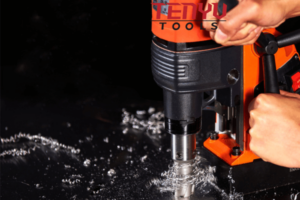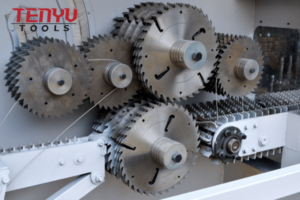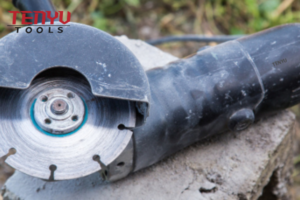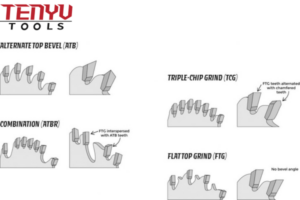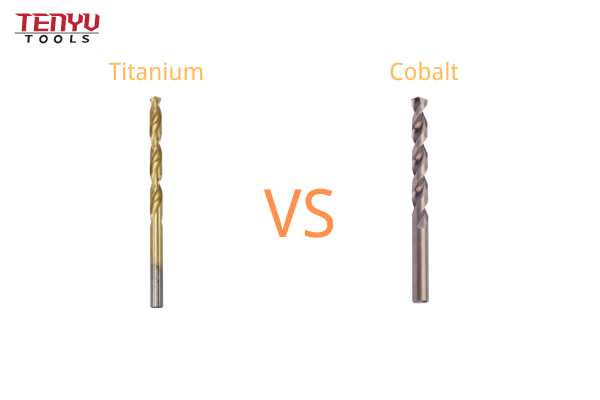
Drilling with the right bit can make or break your project. Choosing between cobalt and titanium drill bits is crucial for success.
When it comes to durability and performance, cobalt drill bits often outperform titanium alternatives.
Selecting the right drill bit can enhance your work efficiency and ensure quality results. Let’s explore the differences and benefits of each type.
HSS vs Titanium vs. Cobalt drills?
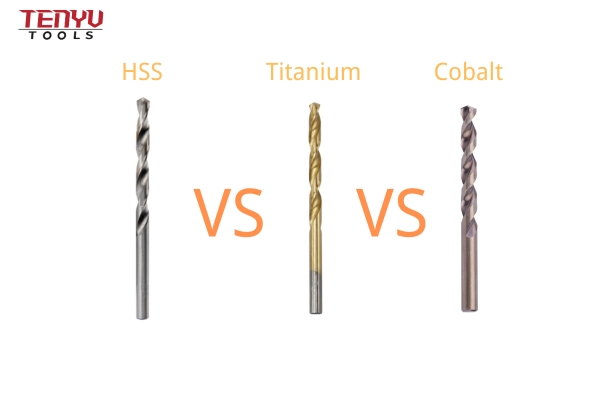
Choosing the right drill bit type is essential for achieving the best results in your projects.
High-Speed Steel (HSS), titanium, and cobalt drill bits each have unique properties suited for different tasks.
Understanding the differences between these drill bits helps in selecting the right tool for your specific needs.
When it comes to drill bits, the materials they are made from significantly impact their performance and longevity. HSS, titanium, and cobalt are three of the most common materials used, each with its own set of advantages and disadvantages. High-Speed Steel (HSS) drill bits are known for their affordability and versatility, making them a popular choice for general-purpose drilling. However, they may not hold up as well under high heat or with tougher materials.
Titanium-coated drill bits, on the other hand, offer increased hardness and heat resistance compared to standard HSS bits. The titanium coating reduces friction, allowing the bit to last longer and perform better when drilling into harder materials like stainless steel or hardwoods. Additionally, titanium-coated bits are lighter, which can reduce user fatigue during extended drilling sessions.
Cobalt drill bits stand out for their exceptional durability and ability to maintain a sharp edge even under extreme conditions. Made from an alloy that includes a significant percentage of cobalt, these bits are highly resistant to heat and wear. This makes them ideal for drilling through very hard materials such as hardened steel, cast iron, and other tough metals. While cobalt bits are generally more expensive than HSS or titanium-coated bits, their longevity and performance can justify the investment for professional use or frequent drilling tasks.
When choosing between HSS, titanium, and cobalt drill bits, consider the specific requirements of your project. For everyday tasks and less demanding materials, HSS or titanium-coated bits may suffice. However, for heavy-duty applications where precision and durability are paramount, cobalt drill bits are the superior choice. By understanding the strengths and limitations of each type, you can select the most appropriate drill bit to ensure efficiency and quality in your work.
Comparison Table
| Drill Bit Type | Material Composition | Best For | Durability | Cost |
|---|---|---|---|---|
| HSS | High-Speed Steel | General-purpose drilling | Moderate | Low |
| Titanium1 | HSS with Titanium Coating | Harder materials like stainless steel and hardwoods | High | Medium |
| Cobalt | HSS alloyed with Cobalt | Extremely hard materials like hardened steel and cast iron | Very High | High |
Are cobalt drill bits worth it?
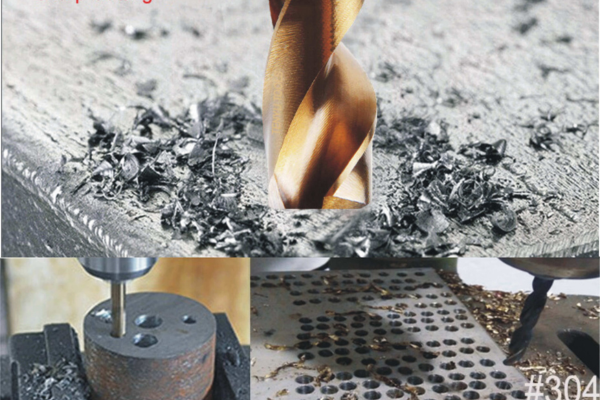
Investing in the right drill bit can save time and money in the long run.
Cobalt drill bits are worth the investment for their superior durability and performance in tough materials.
Evaluating the cost versus benefits of cobalt drill bits reveals their value in demanding drilling tasks.
When considering whether cobalt drill bits are worth the investment, it’s important to assess their performance and longevity compared to other types. Cobalt drill bits are designed to handle high-stress drilling scenarios, particularly in hard metals like stainless steel and cast iron. Their unique composition, which includes a significant percentage of cobalt, allows them to withstand higher temperatures without losing their hardness. This means they can drill through tough materials more efficiently and with less wear and tear.
While the initial cost of cobalt drill bits is higher than that of HSS or titanium-coated bits, their extended lifespan can offset the upfront expense. For professionals or hobbyists who frequently work with challenging materials, the durability of cobalt bits means fewer replacements and less downtime spent switching out worn tools. Additionally, their ability to maintain a sharp edge reduces the risk of broken bits and ensures cleaner, more precise holes, which can enhance the overall quality of your projects.
Moreover, cobalt drill bits often come with features like a high-temperature resistance and increased strength, making them a reliable choice for heavy-duty applications. Their performance consistency under demanding conditions makes them a preferred option for tasks that require precision and reliability. In environments where quality and efficiency are paramount, the benefits of using cobalt drill bits can significantly outweigh the higher initial cost.
In summary, cobalt drill bits offer substantial advantages in terms of durability and performance, especially when dealing with hard materials. For those who require reliable and long-lasting drill bits, the investment in cobalt can lead to better results and cost savings over time.
Cost-Benefit Analysis
| Factor | HSS Drill Bits | Titanium Drill Bits | Cobalt Drill Bits2 |
|---|---|---|---|
| Initial Cost | Low | Medium | High |
| Durability | Moderate | High | Very High |
| Performance in Hard Materials | Limited | Good | Excellent |
| Maintenance Frequency | High | Moderate | Low |
| Overall Value | Good for Light Use | Great for Moderate Use | Best for Heavy Use |
Can titanium drill bits be sharpened?
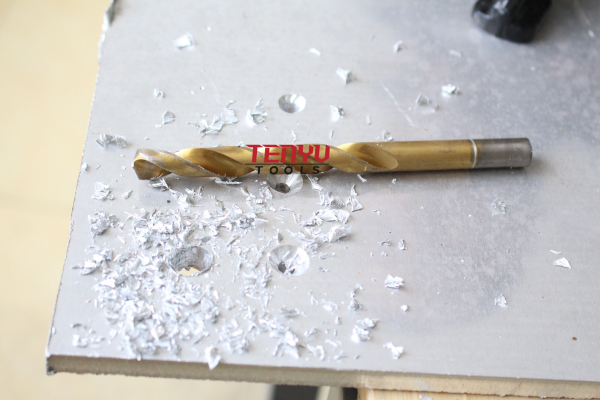
Maintaining your tools ensures they perform optimally over time.
Yes, titanium drill bits can be sharpened, but it requires specific techniques to preserve their coating.
Understanding the proper methods for sharpening titanium drill bits can extend their lifespan and maintain their effectiveness.
Sharpening titanium drill bits is a feasible process, but it requires careful handling to avoid damaging the titanium coating that enhances their performance. The titanium coating reduces friction and increases the bit’s hardness, making it more effective for drilling into harder materials. However, this coating can be delicate and may wear off if not sharpened correctly.
To sharpen titanium drill bits, it’s essential to use a precise sharpening tool, such as a high-quality bench grinder or a dedicated drill bit sharpener. The key is to maintain the original angle of the cutting edges while gently removing any dull or damaged sections. It’s important to apply minimal pressure to avoid overheating, which can compromise the integrity of the titanium coating. Using coolant or lubricants during the sharpening process can help manage heat buildup and preserve the coating.
After sharpening, inspect the drill bits to ensure that the coating remains intact and that the cutting edges are sharp and free from nicks. Properly sharpened titanium drill bits will regain their efficiency and extend their usable life, making them a cost-effective choice for those who regularly engage in drilling tasks.
However, it’s worth noting that over time, the titanium coating may wear down despite careful sharpening. When the coating is significantly worn or if the bit shows signs of structural damage, it may be more practical to replace the drill bit rather than attempting further sharpening. Regular maintenance and proper storage can also help prolong the life of titanium drill bits, ensuring they remain effective for as long as possible.
Sharpening Steps
- Secure the Bit: Hold the drill bit firmly in a vise or a clamp to prevent movement during sharpening.
- Set the Angle: Maintain the original angle of the drill bit’s cutting edges to ensure optimal performance.
- Grind Gently: Use a bench grinder3 or drill bit sharpener with light, consistent pressure to remove dull sections.
- Use Coolant: Apply a coolant or lubricant to prevent overheating and protect the titanium coating.
- Inspect the Bit: After sharpening, check for a smooth, sharp edge and ensure the coating is intact.
- Test the Bit: Drill a test hole to verify the bit’s performance and sharpness before returning it to regular use.
WHEN SHOULD YOU CHOOSE COBALT DRILL BITS?
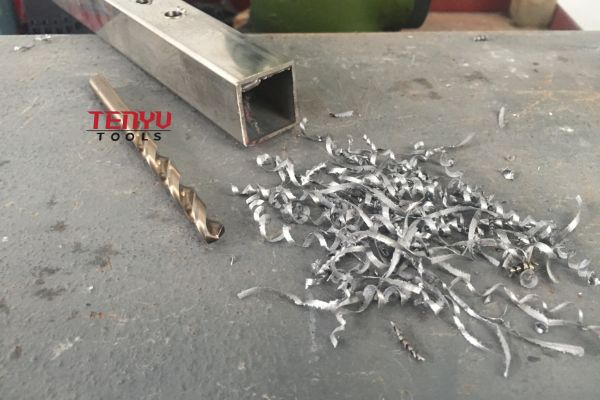
Selecting the right tool for the job can enhance efficiency and results.
Choose cobalt drill bits when working with extremely hard materials or when high durability is required.
Identifying the right scenarios for using cobalt drill bits ensures optimal performance and longevity of your tools.
Cobalt drill bits are specifically designed for demanding drilling tasks that involve hard materials. When you are working with metals such as stainless steel, cast iron, or other hardened alloys, cobalt drill bits are the ideal choice. These bits are engineered to withstand the high heat generated during drilling without losing their hardness or becoming dull quickly. This makes them perfect for professional applications where precision and efficiency are critical.
Additionally, if your projects involve repetitive drilling or high-volume production, cobalt drill bits offer the durability needed to maintain consistent performance over extended use. Their ability to resist wear and maintain sharpness means less downtime spent on bit replacements and more focus on completing your tasks efficiently. This is particularly beneficial in industrial settings or for businesses that prioritize quality and reliability in their products.
Moreover, cobalt drill bits are advantageous in scenarios where drill bit longevity is a priority. Investing in cobalt bits can reduce the frequency of replacements, providing long-term cost savings despite the higher initial investment. Their robust construction ensures that they can handle challenging drilling environments, making them a valuable addition to any toolkit that demands high performance and resilience.
Use Cases for Cobalt Drill Bits
- Industrial Manufacturing: Ideal for drilling through hardened steel and other tough materials.
- Automotive Repairs: Perfect for tasks involving metal components that require precision drilling.
- Metalworking4: Essential for detailed work on stainless steel and other hard metals.
- Maintenance Operations: Reliable for ongoing maintenance tasks that demand durability and efficiency.
What is the advantage of cobalt bit in drilling?
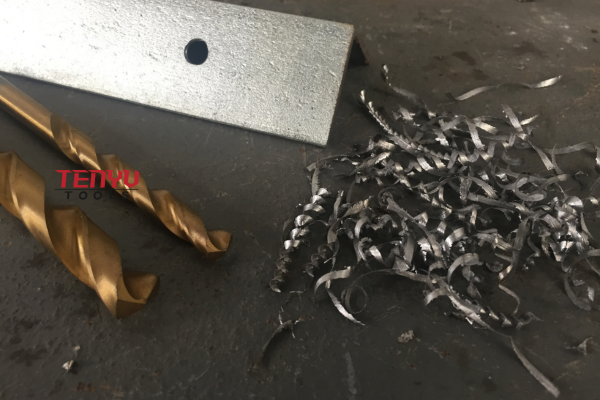
Using the right drill bit can significantly impact the quality and efficiency of your work.
Cobalt drill bits offer superior heat resistance and durability, making them ideal for drilling into hard metals.
Exploring the specific benefits of cobalt bits highlights why they are a preferred choice for demanding drilling tasks.
Cobalt drill bits provide several key advantages that set them apart from other types of drill bits. Firstly, their exceptional heat resistance allows them to maintain their hardness even under the high temperatures generated during intensive drilling. This ensures that the drill bit remains sharp and effective, reducing the likelihood of dullness and extending the lifespan of the bit. As a result, cobalt bits can handle continuous drilling operations without significant wear, making them highly efficient for both professional and heavy-duty use.
Another significant advantage of cobalt drill bits is their superior durability. The addition of cobalt to the high-speed steel alloy enhances the bit’s strength and resistance to corrosion. This makes cobalt bits less prone to breaking or chipping, even when drilling through tough materials. Their robust construction allows them to maintain precise cutting edges, ensuring clean and accurate holes every time. This precision is particularly important in applications where the quality of the drill hole directly impacts the overall project outcome.
Furthermore, cobalt drill bits excel in their versatility. They are capable of drilling through a wide range of materials, including stainless steel, cast iron, titanium, and other hard metals. This versatility makes them a valuable tool in various industries, from automotive and construction to metalworking and manufacturing. Whether you are working on a small DIY project or large-scale industrial drilling, cobalt bits can adapt to different requirements, providing consistent performance across diverse applications.
In addition to their technical benefits, cobalt drill bits often come with a higher resistance to wear and tear, reducing the need for frequent replacements. This not only saves money in the long run but also minimizes downtime, allowing for more efficient workflow and productivity. Their reliability under challenging conditions ensures that projects are completed on time and to a high standard, reinforcing the importance of selecting the right drill bit for the job.
Benefits Summary
| Advantage | Description |
|---|---|
| Heat Resistance5 | Maintains hardness at high temperatures, reducing dullness. |
| Enhanced Durability | Stronger and more resistant to corrosion and wear. |
| Precision Drilling | Ensures clean and accurate holes with sharp cutting edges. |
| Versatility | Effective on a variety of hard materials like stainless steel. |
| Cost-Effective Over Time | Longer lifespan reduces the need for frequent replacements. |
Conclusion
Choosing between cobalt and titanium drill bits depends on your specific drilling needs and materials.
-
enhance the durability of drill bits, making them ideal for harder materials. ↩
-
known for their excellent performance in hard materials. ↩
-
for sharpening, this link directs to a source that explains the best tools and techniques for drill bit sharpening. ↩
-
an industry that involves working with tough materials like stainless steel. ↩
-
refers to the ability of materials to withstand high temperatures without losing their hardness or performance. ↩

